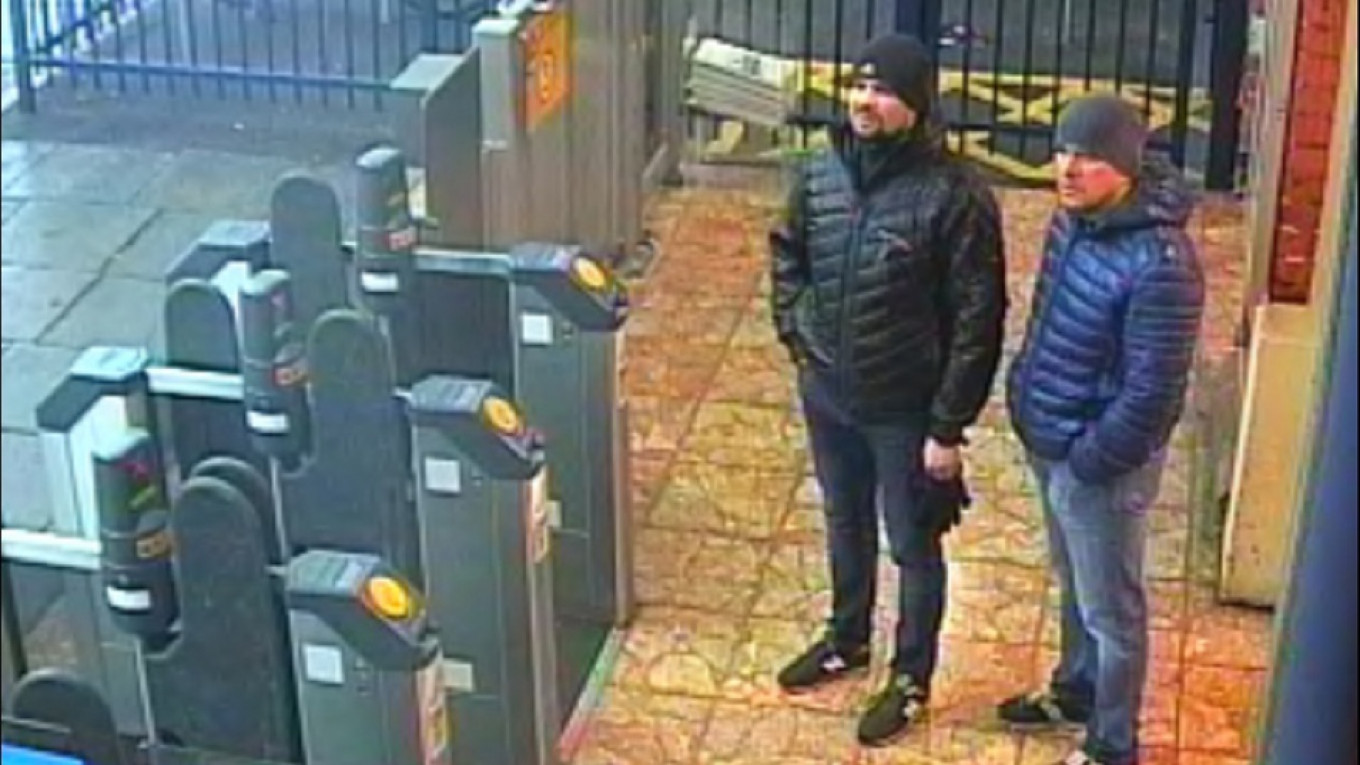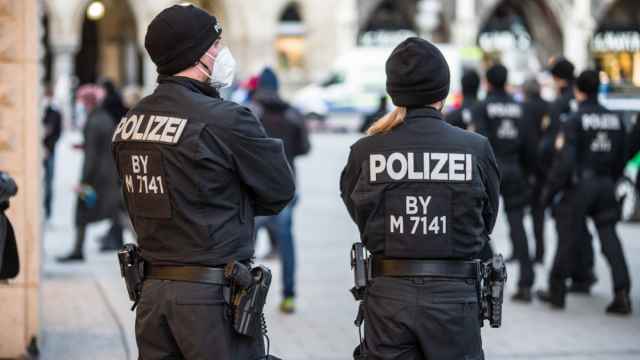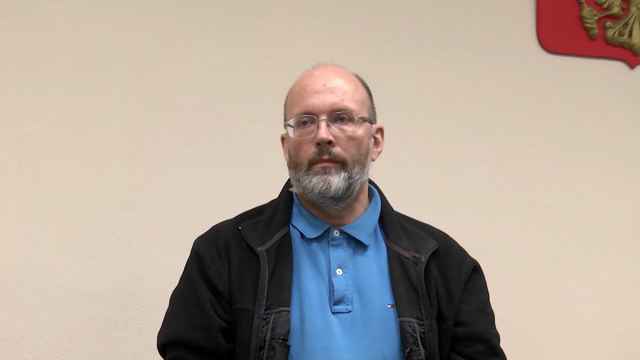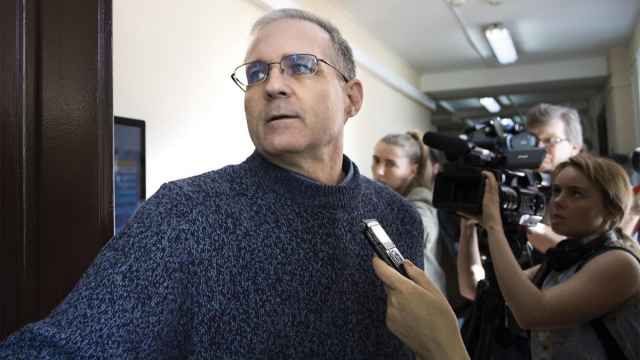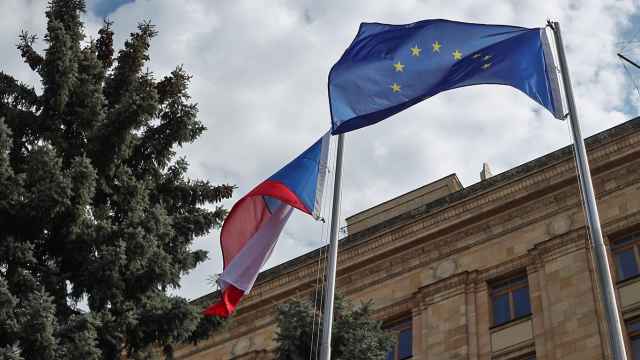People using the same passports as two men accused by Britain of the attempted murder of a former Russian spy and his daughter traveled widely in Europe and made a previous trip to Britain, according to an online Russian news outlet.
Russian citizens identified as Alexander Petrov and Ruslan Boshirov were charged in absentia by Britain on Wednesday with trying to murder Sergei Skripal and his daughter Yulia with a military-grade nerve agent in England.
British authorities have said the men were Russian military intelligence agents travelling with genuine Russian passports, but under aliases.
The Kremlin denied that Russia had been in any way involved in the poisoning, describing British accusations that an attack had been approved by senior Russian officials as "unacceptable."
Fontanka said people using the passports in the names of Petrov and Boshirov traveled to Amsterdam, Geneva, Milan and Paris on multiple occasions between September 2016 and March 2018. A person using Petrov's passport traveled to London at least once before the Skripals were poisoned, for a visit from Feb. 28.
Fontanka, an independent Russian media outlet with a strong track record of investigative reporting, did not disclose the source of its information.
Yulia Skripal and her father Sergei, a former colonel in Russian military intelligence who betrayed dozens of agents to Britain’s MI6 foreign spy service, were found unconscious on a public bench in the British city of Salisbury on March 4.
They were in hospital for weeks and have both now been discharged.
Britain said they were poisoned with the Novichok nerve agent developed in Russia, and that it was highly likely the Russian state had tried to murder them. The case brought the biggest round of East-West diplomatic expulsions since the Cold War.
Russia said British authorities had failed to produce any evidence of Russian involvement in the poisoning and showed no interest in conducting a thorough investigation.
A woman later died from Novichok poisoning after her partner found a counterfeit perfume bottle which police believe had been used to smuggle the nerve agent into Britain.
The Russian foreign ministry said in a statement released late on Wednesday that a speech by British Prime Minister Theresa May threatening Russia with retaliation over the poisoning was delivered in an "unacceptable tone."
Referring to May's accusations of Russia's involvement in the poisoning, the statement said: "We decisively reject these insinuations."
A Message from The Moscow Times:
Dear readers,
We are facing unprecedented challenges. Russia's Prosecutor General's Office has designated The Moscow Times as an "undesirable" organization, criminalizing our work and putting our staff at risk of prosecution. This follows our earlier unjust labeling as a "foreign agent."
These actions are direct attempts to silence independent journalism in Russia. The authorities claim our work "discredits the decisions of the Russian leadership." We see things differently: we strive to provide accurate, unbiased reporting on Russia.
We, the journalists of The Moscow Times, refuse to be silenced. But to continue our work, we need your help.
Your support, no matter how small, makes a world of difference. If you can, please support us monthly starting from just $2. It's quick to set up, and every contribution makes a significant impact.
By supporting The Moscow Times, you're defending open, independent journalism in the face of repression. Thank you for standing with us.
Remind me later.



